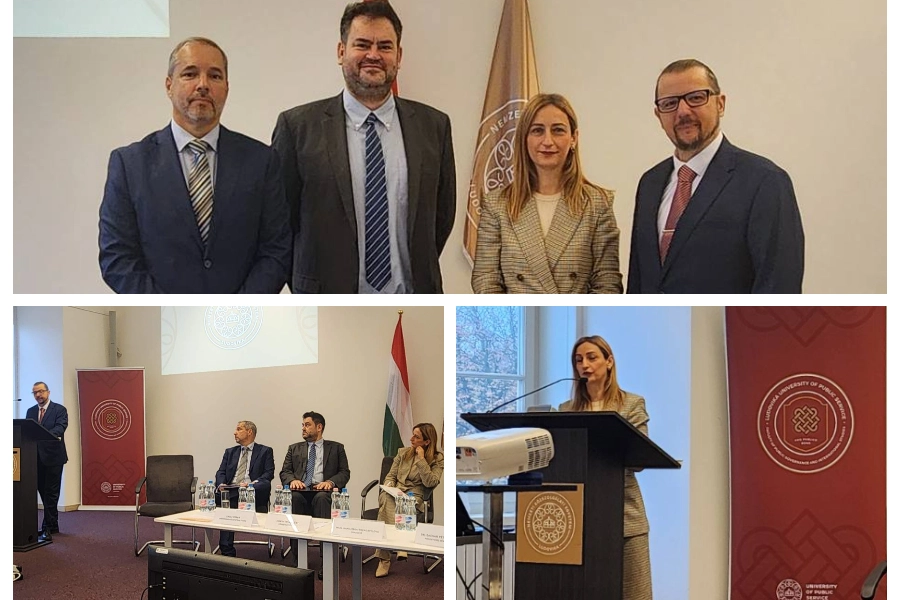
Handjiska-Trendafilova at the 7th Balkans Conference: “Modern Public Administration is the Engine of Stability and Change in the Western Balkans”
14 November 2025, Budapest, Hungary
The 7th Balkans Conference, titled “Stability and Change in the Western Balkans,” co-organised by the Jean Monnet Centre of Excellence and Ludovika University, brought together distinguished experts, academics, and policymakers to discuss the evolving dynamics of stability, security, and European integration in the region.
The conference gathered leading representatives from academia, regional institutions, and public administrations to exchange perspectives on the political, strategic, and socio-economic shifts shaping the Western Balkans.
The event was opened by Dr Péter Krisztián Zachar, Vice-Dean for International Affairs at the Faculty of Public Governance and International Studies, who welcomed participants and underlined Ludovika University’s commitment to fostering dialogue and cooperation across the region.
The Plenary Session featured keynote addresses by Director Maja Handjiska-Trendafilova and Gellért Horváth, Director for Common Security and Foreign Policy and Enlargement at the Hungarian Ministry of Foreign Affairs. The session was moderated by Ambassador Csaba Zalai, Professor of Practice at Ludovika University.
In her address, Director Handjiska-Trendafilova emphasized the crucial role of strong and modern public administrations in sustaining stability and advancing reforms across the Western Balkans. She underlined ReSPA’s ongoing efforts to foster regional cooperation, enhance administrative capacity, and support the region’s progressive alignment with the European Administrative Space: “The renewed momentum for enlargement brings both encouragement and responsibility - to make reforms irreversible and credible, and to ensure the Western Balkans’ place in the European family.”
The Section after the Director’s keynote address focused on regional and geopolitical perspectives and brought together Boglárka Koller, who presented an analysis of “The Western Balkans and the Future of EU Enlargement: Insights from the Visegrad Group, 2014–2025”, Dániel Harangozó, who explored “Serbia’s defence and military policy dilemmas in the era of the Russia-Ukraine War” and Tímea Zsivity, who discussed “Montenegro: between EU integration and security challenges.” The session, moderated by Edit Lőrinczné Bencze of Ludovika University, provided valuable insights into the interplay between national strategies and broader European policies in the current geopolitical context.
The conference continued throughout the day with additional sessions, debates, and exchanges, reaffirming the shared commitment to dialogue, cooperation, and European integration as essential foundations for the Western Balkans’ sustainable stability and development.



